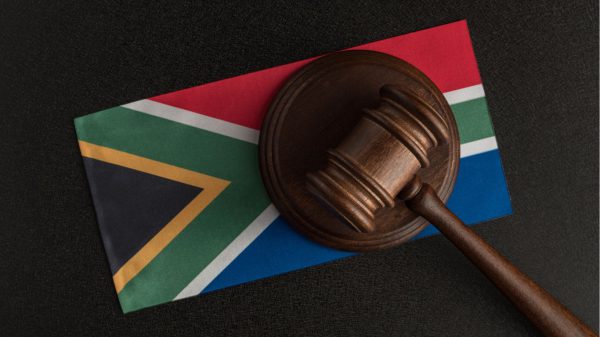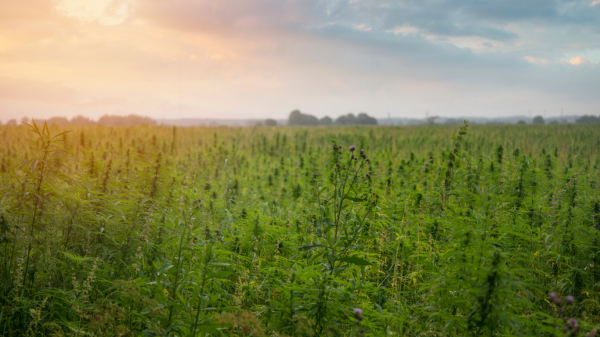Cannabis legislation in South Africa has undergone some significant changes in recent years. In the past, cannabis was prohibited, and has been deemed legal to grow, use and possess for private or personal use by the Constitutional Court in 2018 . Cannabis holds a huge amount of potential for medical and economic purposes. With shifting laws and regulations, it is essential for individuals and communities to grasp cannabis legislation in South Africa. In this blog, we are going to talk about the history of cannabis legislation in South Africa, cannabis regulation and what the future of cannabis legislation looks like, so do keep reading.
The History
Cannabis has a long history in South Africa. In the 20th century the plant became subject to strict prohibition which led to widespread arrests and limited access for both recreational and medicinal use. Several cases and events have played a crucial role in shaping the current cannabis legislation in SA.
Some landmark legal cases in cannabis history in South Africa are the Trial of the Plant, that of Rastafarian lawyer – Garreth Prince, the leader of the Dagga Party – Jeremy Prince, and the Dagga Couple. They all challenged the constitution and raised public awareness about the need for change in cannabis legalization. These cases contributed to a shift in attitudes towards cannabis and the recognition of its potential benefits.
The NGO, Fields of Green for ALL, joined forces with Jeremy and Garreth as co-applicants in the Concourt case. In 2018, the Constitutional Court ruled cannabis legal to grow, use or possess for personal or private use.
The Cannabis for Private Purposes Bill was introduced in 2020, and although not yet passed, it aimed to regulate the growing, possession, and use of cannabis for private use. The government was given two years by the court to amend the South African 1992 Drugs and Drug Trafficking Act. We are still enthusiastically waiting for the formation of a parliamentary committee that will fulfill the Constitutional Court order.
However, in 2023 we have some hope shining through after a groundbreaking meeting between the Cannabis Phakisa Action Lab, the presidency, and the department of Agriculture, Land Reform and Rural Development. They brought together a rather diverse group of stakeholders across civil society and government, with the plans to accelerate the unleashing of the cannabis sector for the nation and its beloved citizens. After five days of intense meetings, it seems exciting times are ahead for the cannabis industry as we can see more progress than we have seen in a while. Some key agreements include the removal of THC limits for industrial cannabis, recognizing the legal rights of traditional growers, and alongside SAPS creating a mechanism that facilitates full adult-use consumption.
Cannabis Regulation in South Africa
In South Africa, there are a number of categories to distinguish for cannabis use, such as:
- Personal use. This refers to the growing, possession, and consumption of cannabis by adults for private purposes.
- Medical Use. This involves cannabis use for therapeutic or medicinal purposes, which requires prescription from a registered healthcare practitioner.
- Commercial Use. This pertains to large-scale cultivation and production of cannabis for sale, subject to specific licensing and regulatory requirements.
When it comes to the regulations surrounding cannabis-related activities in South Africa, it involves licensing requirements and processes. For commercial cultivation, individuals or entities would need to apply for licenses from the South African Health Products Regulatory Authority (SAHPRA). The licensing process is quite a rigorous one and would involve having to meet specific criteria, such as security measures, quality control protocols, and good manufacturing processes. Individuals that would like to engage in cannabis-related activities for personal or medical use would need to register and obtain permits, depending on the nature.
SAHPRA is the primary regulatory authority that oversees the licensing, quality control, and the regulation of cannabis products for medicinal use. The South African Police Service (SAPS) is responsible for enforcing compliance with cannabis laws and addressing illicit activities. Other bodies are also involved such as the Department of Agriculture, Land Reform, and Rural Development.
Public Perception and Social Impact
In recent years, South Africa has witnessed a notable shift in public perception towards cannabis. There has been an increased interest in its potential benefits, both for personal use and economic development. As people became more informed about cannabis, attitudes have shifted from the stigma and prohibition to acceptance and advocacy for responsible use.
Cannabis legislation in South Africa addresses social justice and equity concerns. By making cannabis legal for personal use and introducing regulations, the legislation aims to reduce unnecessary arrests and convictions, contributing to a more equitable justice system.
The legalization of cannabis can create opportunities for many, including previously disadvantaged individuals, and we all therefore hope to see that happen soon! Public health campaigns and education initiatives are vital for promoting responsible cannabis use and providing accurate information about its effects.
The Future
The future of cannabis legislation in South Africa involves ongoing debates and discussions around the various aspects of the industry. These debates will be around licensing regulations, taxation, product standards, and public consumption policies. As the cannabis industry continues to grow, there are potential areas for future legislative development. These may include further regulations for commercial cultivation and distribution, streamlining licensing processes, export opportunities, and addressing emerging issues such as labeling and advertising. With organizations such as “Fields of Green for ALL” on board the fight for cannabis legalization and removing the stigma around cannabis use, the future’s looking bright. We hope to see more developments in the near future, and with the exciting news we received in June 2023 regarding the Phakisa Action Lab will bring positive change to the future of the cannabis industry.
Final Thoughts
Understanding cannabis legislation in South Africa is vital for everyone. We have seen many significant milestones being marked in the country’s approach to Cannabis regulation. With the ongoing discussions, public perceptions are being shifted and we have already seen significant changes. As debates continue, staying informed and participating in the dialogue will shape the future of the cannabis industry in South Africa.
Cannacopia regularly shares updates in legislation within the cannabis industry, follow our Facebook page to keep updated on our products, and all things related to the cannabis industry. Do also have a look at our CBD health and wellness range. Keep a lookout for a new post on the Cannacopia blog later this week that will provide more information on the Phakisa Action Lab and the promising results that stemmed from the meetings.




